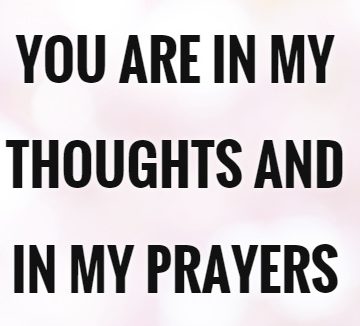The Era of Internet Condolences

November 7, 2017
Nowadays, the Internet has become the go-to for so many intimate, (or at least used-to be) exchanges. Announcing an engagement or pregnancy, wishing someone a happy birthday, sharing life updates, whatever your brain tells your hands to type, it’s all considered fair game. This includes giving condolences, paying our respects to those who’ve passed and sharing our personal sense of loss. When this happens, the outpour is quite responsive, and mostly positive. I guess that shows we should still have faith in humanity’s caring sense of nature when it really comes down the wire, and for the time-being, takes a small fraction of social media’s attention off things like, for instance, politics, more specifically, Donald Trump. And no, I’m not voicing my opinion on the guy, but all I can say is, these days I feel like I can’t even use the bathroom without seeing his face or hearing his name!
Anyways… this had me thinking, when people experience a tragic event, and their first response is to reach for their iPhone, what really fuels that temptation? Is it a genuine need to somehow show that they’re remorseful for that person, or themselves? Or is it to buff their image? Show they’re a ‘good person’? Prove to their 113 Facebook friends, including that weird guy they met at a barbecue, that they are very saddened over the loss of good ol’ Jim Bob, a guy he’s never even heard of but now has a reason to post on their page as well to draw attention to himself and repeat the cycle?
I did some research and found that a study from the University of Illinois that investigated how people use the Internet to grieve. Following a campus shooting, researchers noticed that students promptly changed their Facebook profile pictures to memorial ribbons and joined groups in support of fellow students. You have to account for the fact that naturally, we’re social creatures, and our instinct is to reach out to other humans when we’re distressed. But does throwing your circumstance into the public eye actually help you heal? Not exactly. According to researchers; while most students said their online activities made them feel better, objective data showed that the tweets, texts and virtual memorials had no effect on their recovery from depression or post-traumatic stress disorder symptoms. Still, the study suggests that the support wasn’t harmful to their psychological health. Long story short, going online to help amend your grieving process is a perfectly acceptable step, as long as you truly feel the need to do so. But even with that in mind, don’t expect people’s responses to make you feel like nothing happened. And 100% consider social media as a way to show support. I think it’s actually a pretty good way to do it too, because unless you and the person who experienced the event are extremely close, they probably aren’t going to be very receptive to a visit, or even a phone call, so a post, or even better, a direct message, expressing your condolences and reaffirming your love and support would do you and he or she the most good.
All in all, if you’ve lost a loved one, or broke a nail on your desk this afternoon, take a second before you publicize that incident to think; is this really necessary? Will my day continue as normal as soon as I send out this tweet that makes it sound like I was married to the deceased? Or will my life be forever changed since I was married to the deceased? In that case, go ahead and post about it. Sorry for your loss, too. But if not, and you weren’t that affected by it, refrain from throwing yourself into the internet’s warm, caring arms that shower you with affection and tell you everything will be fine, and not to worry, that nail will grow back in no time.
Article I used for research:
https://news.illinois.edu/blog/view/6367/205502